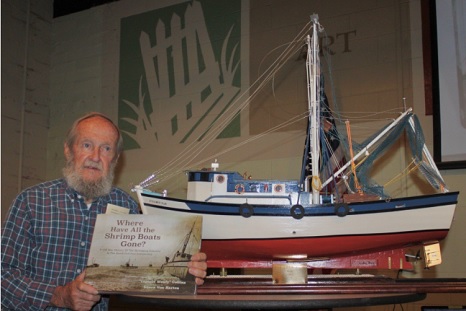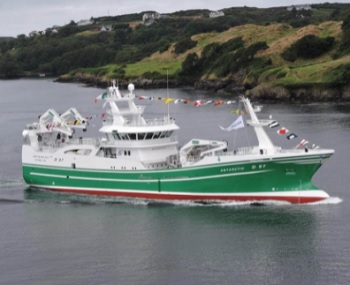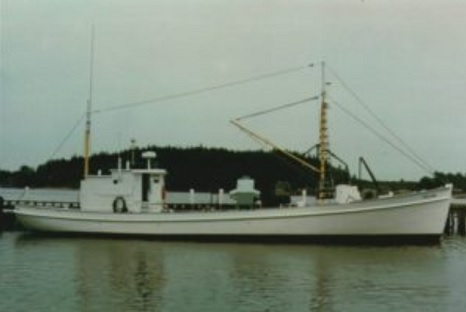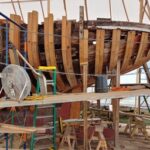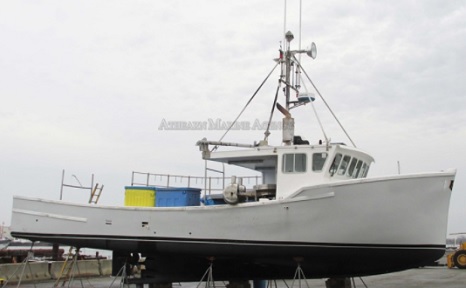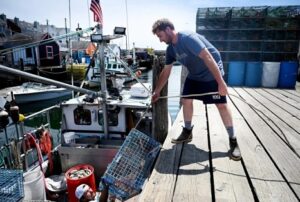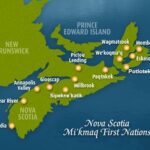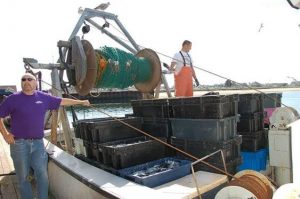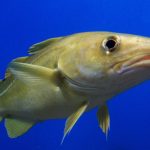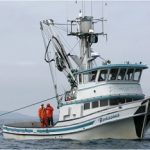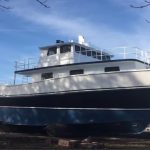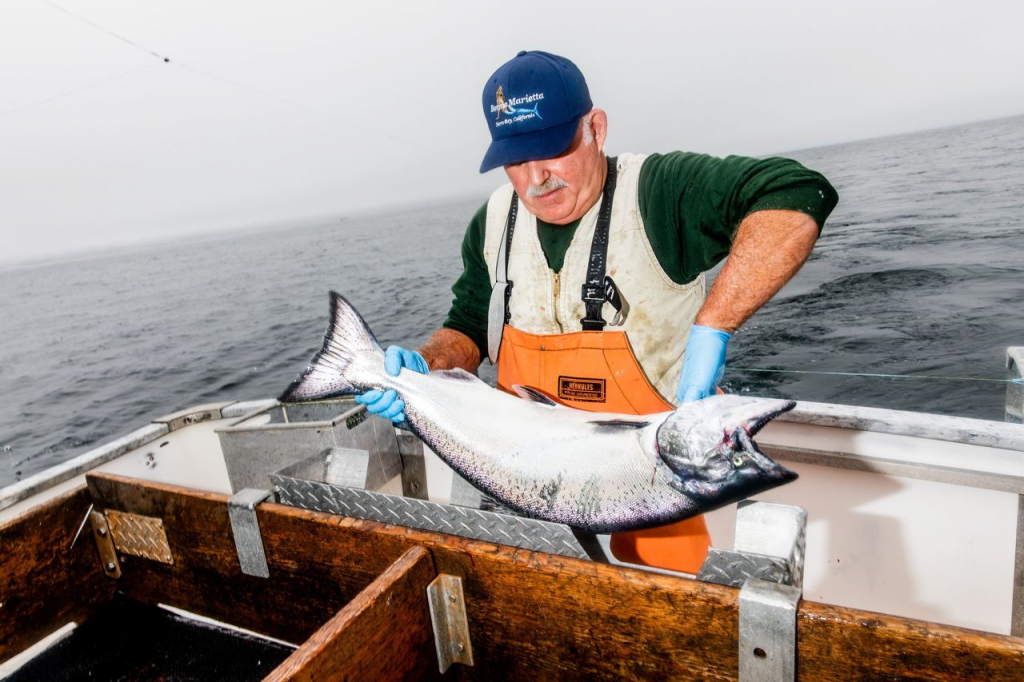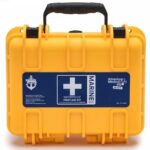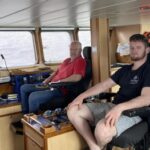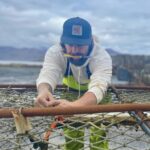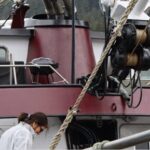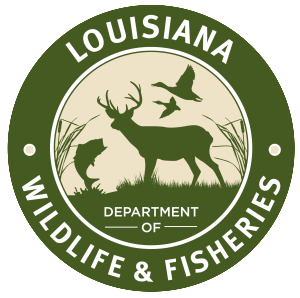Monthly Archives: July 2021
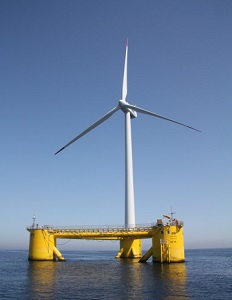
HEY POLITICIANS !!! The levelized cost of floating offshore wind farms – It is a financial disaster.
Last year, I wrote a blog post setting out the financial situation of Hywind, the UK’s first commercial floating offshore windfarm, and indeed the first in the world. It was an ugly tale, with a hugely lossmaking operation kept in the black only by a vast transfer of subsidies. However, Hywind has recently published its second set of financial results since it became fully operational,,, Situated off Peterhead, in what appears to be something of a sweet spot for wind, yadda. yadda, Meanwhile its costs are extraordinarily high. We already knew that its capital cost, at £8.9m/MW. was around three times the that of fixed offshore wind. But its opex costs are also much higher, >click to read<, Also a follow up article: “Clues to the levelised cost of tidal stream” – Yesterday, I set out the levelised cost of floating offshore wind turbines. In this article, I will look at what we know about the levelised cost of tidal stream energy, and show that it is probably even higher. >click to read< 15:32
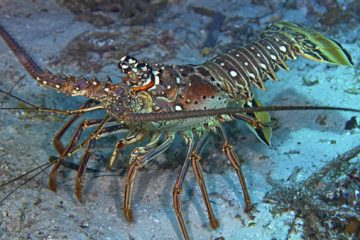
Spiny lobster season kicks off amid an unexplained population drop
The Caribbean spiny lobster commercial fishery in Florida average more than 5 million pounds per year,,, Valued at more than $40 million, the spiny lobster fishery is the second most lucrative commercial fishery in the state, behind shrimp.,, Since the 1990s, the population of the Caribbean spiny lobster has decreased 20%, which matters, not only to fisheries and spiny lobsters, but also to the entire food chain of Florida’s waters. “They’re a main food item for every other organism in the Florida Keys. Everything wants to eat little lobsters from snapper, grouper, even some herons. Matthews said while the American lobster is a “mean, nasty animal” not afraid to “fight to the death,” the Caribbean spiny lobsters are just the opposite. “They love to be in groups. They defend each other, and they are very social animals. >click to read< 12:04

Whales, Warming and Offshore Wind Farms – Lobstering is under attack
As Rep. Billy Bob Faulkingham described it, three seemingly combined forces are aligned and have put the bull’s-eye on the men and women in Maine whose lives depend on lobstering, whales, warming and wind power. The right whale protection consortium has heightened its efforts to alter nearly every aspect of Maine’s primary fishing industry by pushing the federal fisheries agencies to limit, reduce and even eliminate the fishing methods currently employed in the local waters and the Gulf of Maine,,, At best, the supposed science is leaning toward saving whales, with little regard for the men and women who are active conservationists every day while doing their jobs. The warming water folks, often the same groups and agencies that are involved with the right whale restrictions, also want to promote bureaucratic rules that will severely impact all forms of fishing. >click to read< 11:06
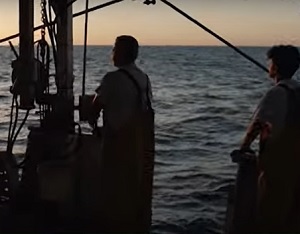
Italy: A day in the life of a fisherman
“Being a fisherman is not only one of the riskiest jobs, it’s also a highly unregulated profession. Every year, dozens of fishermen die in Europe. In 2019, at least 16 lost their lives and hundreds were injured. In this episode of our Ocean series, we join the crew of Captain Davide Sanulli, who harvests mussels off the coast of Emilia-Romagna in Italy. He admits that his days are not always easy, but he never complains. video, >click to watch< 09:33
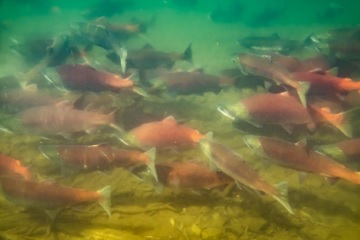
Bristol Bay Fisheries Report: July 30, 2021
It’s the final Fisheries Report of the 2021 season! Each summer, Alaskans take to the rivers, bays and oceans to subsistence fish. Some head out to set nets, others may use dip nets, all to stock up on enough fresh fish to last the winter.,, The late sockeye run to the Chignik River may be on track to meet its low-end escapement, but the early run likely won’t hit the mark. The Chinook run hasn’t reached its escapement, either. Commercial fishermen only had three openers to target pink and chum salmon in the inner bays. But lots of people spent the summer tendering in Bristol Bay. There will be one final daily run summary posted online Monday August 2nd, and the final season summary will be available mid-September. >click to read< 08:32
Fish tails – on the final #FishyFriday of July
Hard to believe looking across the harbour this morning that six hours before this was taken both St Marys and Sennen lifeboat were patrolling the Scillys as gusts up to 69mph caused chaos both ashore and at sea. An impatient fleet gets the gear sorted before leaving the quay and heading back to sea.. first away was the hake netter Ajax, Fish, photos, >click to read< 22:47
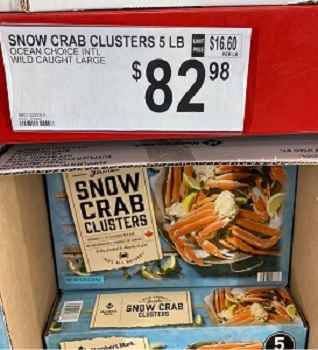
SEA-NL calls for review of the panel system for fish pricing
Seaward Enterprises Association of Newfoundland and Labrador (SEA-NL) says this year’s snow crab fishery had the highest landed value in the province’s history, but there’s evidence inshore harvesters may not have gotten a fair share of market returns. “When the market price of snow crab continued to rise after the final price to inshore harvesters was set at the end of April with no way for harvesters to appeal that price, then the system must be overhauled or scrapped, says Ryan Cleary, interim Executive Director of SEA-NL. “In that light, SEA-NL is asking the Andrew Furey administration to review the panel system of fish pricing.” >click to read< 15:46

Fisherman at sea stabbed in the head by crewman facing charges of assault with a deadly weapon
A fisherman on a boat out at sea from the Half Moon Bay area was stabbed in the head by a crewmate but will survive,,, Orion Carlson, 39, of Chimacum, Washington, allegedly stabbed his crewmate in the back of his head, resulting in a several-inch-long laceration, with part of the knife breaking off in the victim’s head, prosecutors said. Other crewmates saw the incident and took the boat back to shore, where the man was rushed to the hospital and Carlson was arrested. The incident took place 10 a.m. July 27, while the crew was out squid fishing. >click to read< 14:37
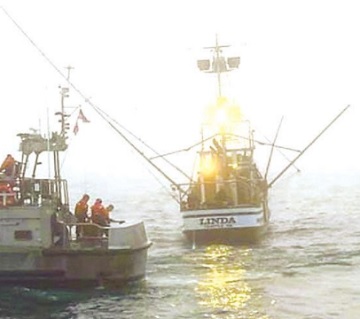
Newport, Oregon: Fishing vessels collide at sea in thick fog
U.S. Coast Guard crews safely escorted two small fishing vessels, one of which was taking on water, back to the dock after they apparently collided in thick fog about 12 miles offshore early Wednesday morning. The Coast Guard will investigate the cause of the incident, which was called into Station Yaquina Bay shortly after 5 a.m. Both fishing boats, F/V Chief Joseph and F/V Linda were still operable, but the Linda sustained damage to its hull and was taking on water. The Coast Guard crew passed over a pump in case it was needed to keep the fishing vessel afloat. >click to read< 13:54
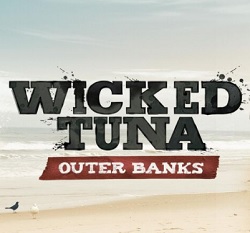
Occupational Change! From Wall St. to the T.V. Tuna Fleet!
Tuna fisherman Captain Bobby Earl was fishing off the coast of North Carolina last summer when his boat exploded, a saga that the Baysider chronicles in this season of Wicked Tuna: Outer Banks, a fishing reality show. While Earl counts escaping the blazing boat as among “the most surreal experience[s] of my life,” the Wall Street manager turned commercial fisherman has had a rather unusual life trajectory. Earl was born and raised in Bayside, Queens, before rising through the ranks on Wall Street. When the housing market crashed in 2008, Earl got fired from his job as a regional manager for Bank of America investments. 2008 changed my life too. >click to read< 11:44
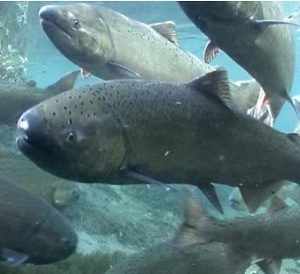
Could B.C. commercial salmon fishery closures affect Southeast Alaska?
Department of Fisheries and Oceans Canada, the federal agency that manages Canada’s fisheries, effectively ended the 2021 commercial salmon season on the West Coast in late June. Canada’s fishing industry was stunned, says B.C. Seafood Alliance Executive Director Christina Burridge. “First Nations have harvested salmon forever. And post-contact, salmon canneries are what in the sense built this province. To be now in this situation seems really tragic to me.” The closure came just weeks after Canada announced a more than half-a-billion dollar plan to revitalize its flagging Pacific salmon stocks in B.C. and Yukon Territory.,, The Chinook on the transboundary rivers Unuk and Chilkat are among the current Southeast stocks of concern. >click to read< 10:11

Who is Jim Pattison? Empire builder and billionaire
At 92 he heads a sprawling empire spanning everything from farm equipment to groceries to Ripley’s Believe It or Not! Pattison is 92, a billionaire many times over, and still helms as chief executive and chairman the company he founded in 1961: the Jim Pattison Group. It would be difficult to find a Canadian entrepreneur with more diverse business holdings. The Jim Pattison Group, owned 100-per cent by Pattison himself, is an umbrella company covering businesses in industries spanning agricultural equipment, signs, packaging, groceries, wine, West Coast fishing, and forestry. He even owns the Ripley’s Believe It or Not! franchise and Guinness World Records. According to Pattison, his group of companies recorded total sales of $12.7 billion in 2020, while employing 51,000 workers, and doing business in 95 countries. >click to read< 09:09
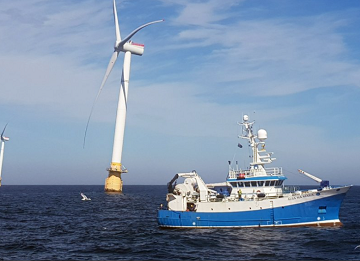
Equinor to trial safe fishing with floating offshore wind farm at Hywind Scotland. No Dragging, though.
Hywind Scotland’s operator Equinor and Scottish government agency Marine Scotland will work together to better understand how fishers can safely operate around and within floating offshore wind farms. In a survey scheduled for 2022, Marine Scotland will test three kinds of fishing gear: creels, fish traps and jigging lines at Hywind Scotland.,, California dreaming – Elsewhere in floating offshore wind, BOEM has decided to determine industry interest in developing offshore wind at two sites in a 1,033km2 area off central California,,, >click to read< 22:05
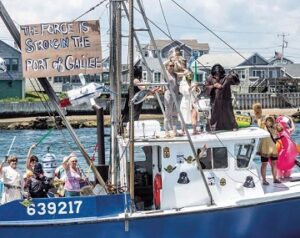
Narragansett: More than 80 boats take to the sea for Blessing of the Fleet
Fishing trawlers, pleasure yachts, Coast Guard vessels and even the Block Island ferries all received a benediction as they passed through the Galilee breachway Saturday afternoon for the annual Blessing of the Fleet. “Lady Frances, may almighty God bless you, Father, Son and Holy Spirit, and all those who sail upon you,” the Rev. Francis Kayatta, pastor at St. Mary Star of the Sea in Narragansett, intoned while making the sign of the cross as the Lady Frances passed by.,, “Proud Mary, may almighty God bless you, Father, Son and Holy Spirit, and all those who sail upon you,” he repeated. “And your little dog too,” he added to a passenger holding a small dog. The passengers yelled back, “Thank you, reverend.”>click to read< 14:32
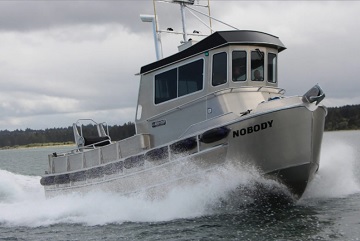
A Perfect Pairing. A Q&A session with John Deere and Mike Blocher of North River Boats
North River Boats in Roseburg, Oregon is one of the largest heavy-gauge aluminum boat manufacturers in the United States with an estimated 10,000 vessels plying the water today. The company continues to diversify, adding the legendary Bristol Bay hull to its lineup. John Deere: What led to the building of this new commercial fishing vessel? Mike Blocher: We build heavy-gauge aluminum boats. During an International Workboat Show, we were approached to build a bay boat. Our general manager and I traveled to Bristol Bay and started looking at boats, talking with fishermen, and found out what worked and what did not. JD: What did you find out? MB: Bristol Bay is unlike any other commercial fishery,,, >click to read< 11:06
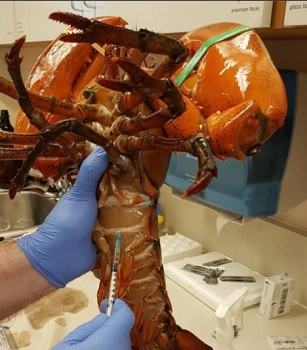
The lobster genome map – ‘It’s an encyclopedia on how to make a lobster’
Lobster already live in a variety of different habitats around Atlantic Canada, from the relatively warm waters of the Northumberland Strait through progressively warmer waters on P.E.I.’s North Shore, the east coast of Nova Scotia, and the Bay of Fundy. “We want to really understand how that temperature stress is going to impact different stages of lobster, and if that’s going to be the same impact in different areas of Atlantic Canada,” >click to read< 09:24
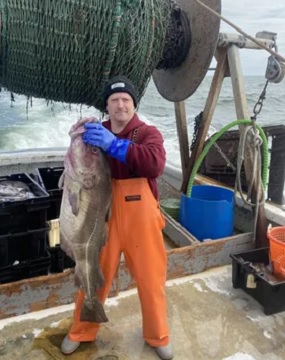
Doomed to Extinction? Where have all the codfish in the Gulf of Maine gone?!!
The commercial fishermen have all been given a personal quota for cod. If they reach their quota, they need to purchase or lease more quota from someone who has extra. The price to “lease” these fish in order to catch them can be exorbitant. Cod has become a commodity on the market being bought or hoarded by non-fishermen to make money off the backs of the active fishermen,,, And then there are the seals. Yes, harbor seals, gray seals and harp seals. Seals would not normally be feeding on large amounts of cod, but we have protected the seal population for decades without regard to the rest of the environment. The result is unmistakably a huge explosion in the seal population within the Gulf of Maine. So, are the cod doomed to extinction? >click to read< 07:50
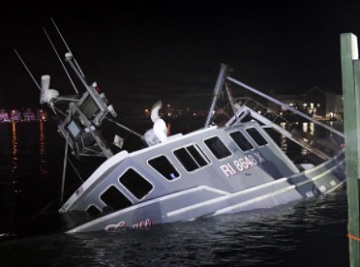
Video: Fishing Boat Hits Rocks In Manasquan Inlet And Sinks
Around 10:40 p.m. last night, a fishing vessel reported that they were taking on water to the USCG Manasquan Inlet station. Initial reports said they had struck inlet rocks and had a hole in the vessel. Witnesses at the Manasquan Inlet (Point Pleasant Side) said that they saw a boat attempt to leave the inlet but struck the rocks and heard a bang then saw the craft turn around at a decent speed and go back into the inlet. >click to read<, and >click here< 19:27
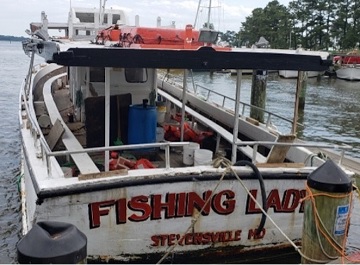
Charter Boat Operator Arrested for Violating Captain of the Port Order and Endangering Passengers
Terrance Dale Roy was arrested by Coast Guard Investigative Service special agents on July 21 and stands accused of violating a Coast Guard Captain of the Port Order issued pursuant to the Ports and Waterways Safety Act, as well as failing to properly report a hazardous condition and operating his boat in a grossly negligent manner. The Coast Guard issued Roy a Captain of the Port Order back in May after his vessel, the Fishing Lady, sank at a 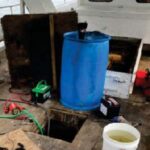 pier in Kent Narrows, Maryland. The order prohibited the vessel from operating commercially until the vessel’s seaworthiness was determined by Coast Guard. Without making the repairs necessary to have the order removed, Roy took on 34 paying passengers out over Father’s Day weekend. >click to read< , >more here<16:43
pier in Kent Narrows, Maryland. The order prohibited the vessel from operating commercially until the vessel’s seaworthiness was determined by Coast Guard. Without making the repairs necessary to have the order removed, Roy took on 34 paying passengers out over Father’s Day weekend. >click to read< , >more here<16:43
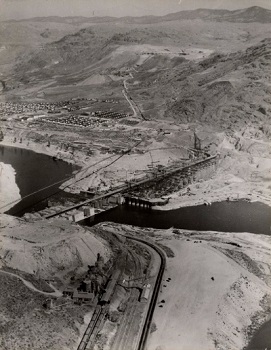
Flawed rescue? – Franklin D. Roosevelt asked for plans for a low dam. Joe Biden wants windmills
“The federal role in damming the Columbia tied in well with the New Deal belief that the government should stimulate economic recovery by putting people to work and encouraging the creation of public utilities,” records a National Park Service history of the river’s Grand Coulee dam. “Franklin D. Roosevelt, elected president of the United States in 1932, asked for plans for a low dam with foundations strong enough to support a higher dam later, one that would back water up to the Canadian border.” (President Joe Biden’s efforts to grow offshore wind) No thought was given to the river’s salmon. “Of all the impacts that caused extinctions of 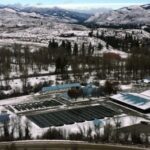 Columbia River Basin salmon and steelhead, dams were the most significant. “The dam wiped out runs that spawned in tributaries that drained into the Columbia from that point, river mile 596, to the headwaters, a distance of 645 river miles. Adding the tributary miles where salmon spawned nearly doubled the distance. >click to read< 14:36
Columbia River Basin salmon and steelhead, dams were the most significant. “The dam wiped out runs that spawned in tributaries that drained into the Columbia from that point, river mile 596, to the headwaters, a distance of 645 river miles. Adding the tributary miles where salmon spawned nearly doubled the distance. >click to read< 14:36
Athearn Marine Agency Boat of the Week: 49’11″X19′ Novi Lobster/Gillnetter, Cat 3306, Substantial Price Reduction
To review specifications, information, and 26 photos, >click here< , To see all the boats in this series >click here< 11:50
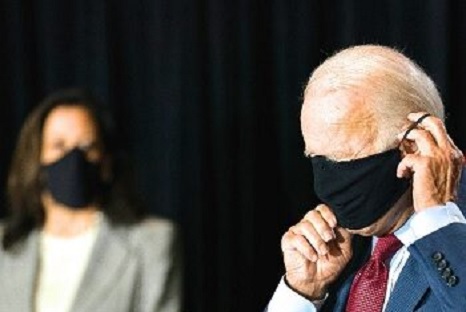
Biden Harris Admin scheme to buy off/ buy out, displace the fishing industry for offshore wind farms!
The Biden administration is considering ways to ensure the U.S. commercial fishing industry is paid for any losses it incurs from the planned expansion of offshore wind power in the Atlantic Ocean, according to state and federal officials involved in the matter. Discussions between state and federal officials, which participants described as being at a very early stage, are aimed at addressing the top threat to President Joe Biden’s efforts to grow offshore wind, a centerpiece of his clean energy agenda to fight climate change. Commercial fishing fleets have vehemently opposed offshore wind projects,,, >click to read< 09:55

Alaska Supreme Court upholds $20,000 fine for Metlakatla fisherman in fishing rights case
The Alaska Supreme Court has upheld the conviction of a Metlakatla fisherman who was fined for fishing without the proper permits. The case is part of a long-running dispute over tribal sovereignty. In 2014, U.S. Coast Guard officers reported a Metlakatla tribal member fishing in a closed area without a state commercial fishing permit. When they boarded the boat they found a few dozen coho salmon, which the skipper reportedly said he intended to sell. Metlakatla resident John Scudero Jr. was cited for three commercial fishing violations and fined $20,000 after a one-day trial the following year. >click to read< 08:27
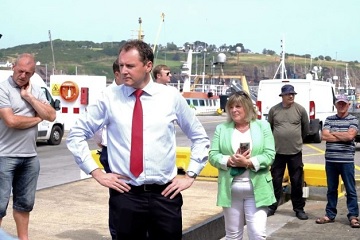
Dunmore East fishermen tell Minister: “All the problems go away if you get more quota.”
The Marine Minister visited the picturesque Dunmore East harbour on one of the hottest days of the year, he faced some searing questions about the future of the fishing fleet, including from a young fisherman who asked him to fight for more quota. “Every year it’s getting harder,” another fisherman said. A fifth generation Dunmore East fisherman told the Minister: “All the problems go away if you get more quota.” Around 20 fishermen gathered at the famous Co Waterford harbour to air their grievances with the minister,,, >click to read< 07:38
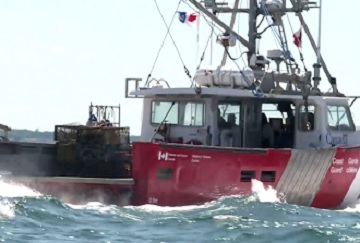
Mi’kmaw harvesting lobster in Nova Scotia under heavy police, DFO presence
Mi’kmaw harvesters are back on the water fishing for lobster and following their own food, social and ceremonial fishery plan. But the large contingent of police and fisheries officers is intimidating and infringing on their Treaty Rights.,, Boats with the Department of Fisheries and Oceans can be seen going by a local wharf with lobster traps on board. Sipekne’katik lobster harvesters are fishing for food and ceremony. Francis says there have been more police and fisheries officers present in the last few weeks. Video, >click to read< 21:22
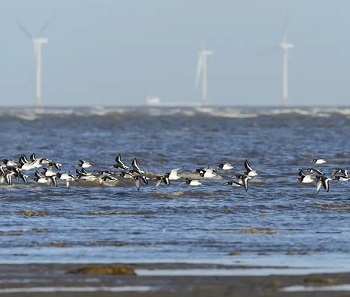
Nothing Green Here! Offshore wind farm turbines could number 30,000 globally by 2030
The price of offshore wind turbines,,, Turbines are up to 70% steel, which is made from recycled or newly extracted iron, which is processed from ores. These ores are removed from rocks by blasting causing disruption to the natural environment, and often from sites with cultural significance to indigenous people. The mined ores are then transported by large trucks, crushed, refined, processed and shipped. Whether it’s emissions from machines processing and transporting the ores or air and water contaminants released during extraction, mining creates pollution. Converting the iron into steel also contributes to climate change. Globally, the iron and steel industry is responsible for 11% of CO₂ emissions. Steel plates are shipped and then rolled into curved sections, people and machines weld these to form long tubes, which are loaded onto vessels, transported to sea and assembled,,, processes which are largely powered by fossil fuels. >click to read< 16:05
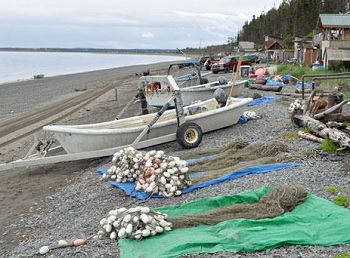
Some setnetters ask state to reopen limited fishery
Commercial setnet fishermen in Cook Inlet had their season cut short last week. When the Alaska Department of Fish and Game closed the Kenai River to sportfishing for king salmon, it closed the east setnet fishery completely. Some of them had only had a handful of openers. There are still plenty of sockeye in the water, which are the main fish the commercial fleet harvests, and setnetters are making some last-ditch plays to try to save some of their season. Ted Crookston, who has been setnetting on the Salamatof beach for nearly six decades, is asking the Board of Fisheries to at least open the setnets in a narrow strip just offshore—out to 600 feet below mean high tide.,, “We’re sitting here on the beach and catastrophically denied access to anything and you’re saying that it’s justified—it’s not,” >click to read< 13:48






